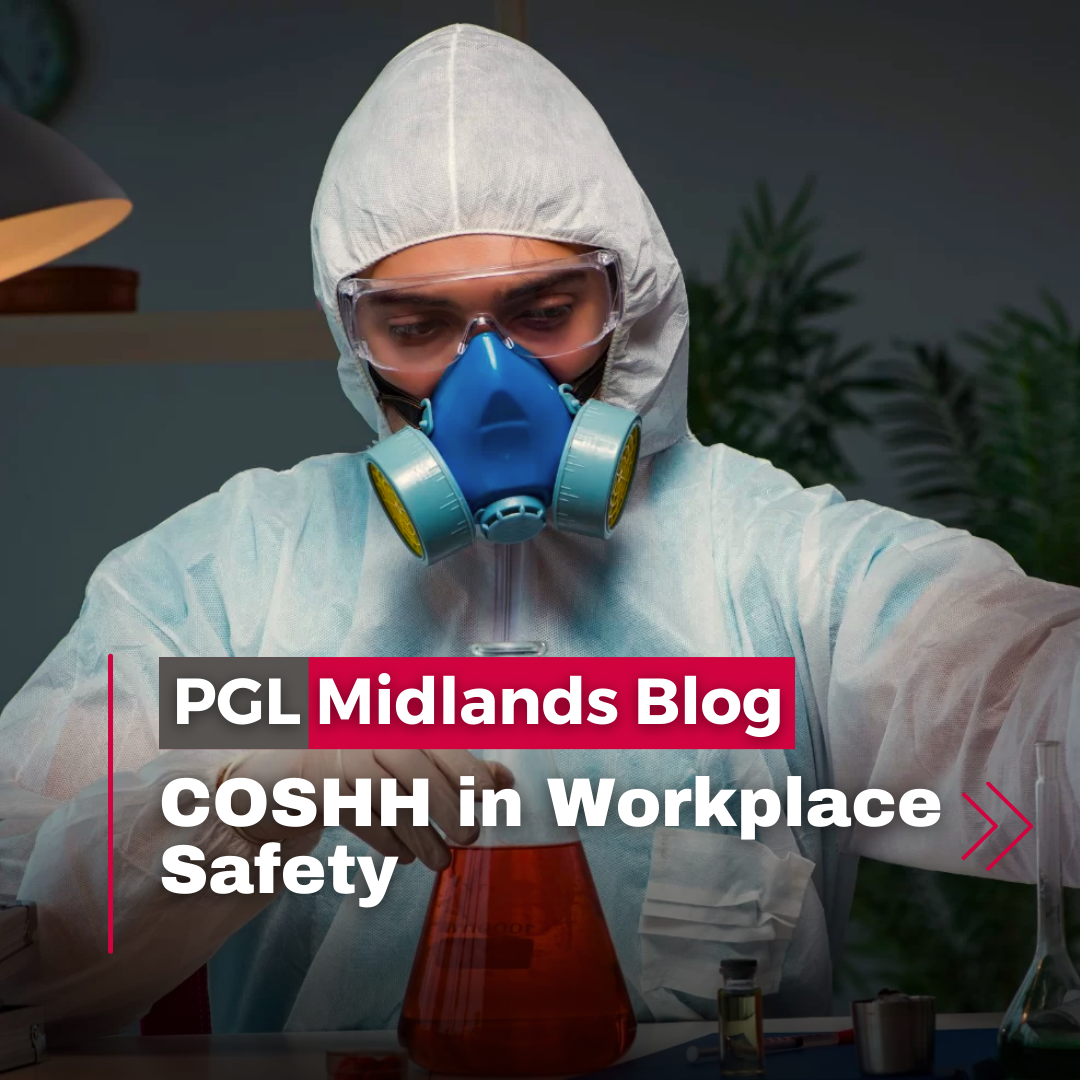
COSHH in Workplace Safety
In Workplace safety, COSHH, or the Control of Substances Hazardous to Health, plays a pivotal role in safeguarding the health and well-being of employees. This blog post will explore into what COSHH covers, the relevant legislation, the importance of workplace training, and highlight PGL Midlands as the ideal choice for comprehensive COSHH training.
What COSHH Covers:
COSHH is a set of regulations that focus on controlling and managing substances that can be hazardous to health in the workplace. These hazardous substances can take various forms, including chemicals, dust, fumes, gases, and biological agents like bacteria and viruses. COSHH aims to protect workers from exposure to these substances and prevent health-related issues.
- Identification: Employers must identify any substances in the workplace that could pose a risk to employees’ health.
- Risk Assessment: A risk assessment must be conducted to evaluate the potential harm that these substances may cause and to determine the necessary control measures.
- Control Measures: Employers must implement control measures to reduce or eliminate exposure to hazardous substances. This can include using protective equipment, improving ventilation, or substituting hazardous substances with safer alternatives.
- Information and Training: Workers should receive adequate information and training to understand the risks associated with hazardous substances and how to protect themselves.
- Monitoring and Health Surveillance: Employers may need to monitor exposure levels and conduct health surveillance to ensure workers’ health is not adversely affected.
Relevant Legislation:
Several pieces of legislation are pertinent to COSHH in the UK, including BUT NOT LIMITED TO:
- Control of Substances Hazardous to Health Regulations 2002 (COSHH): These regulations form the core of COSHH compliance and provide the legal framework for managing hazardous substances in the workplace.
- Health and Safety at Work Act 1974: This overarching legislation places a general duty on employers to ensure the health, safety, and welfare of their employees and others affected by their work activities.
- Classification, Labelling and Packaging (CLP): Classification, labelling and packaging of substances and mixtures – the CLP Regulation – came into force in all EU member states, including the UK, on 20 January 2010. The CLP Regulation:
Importance of Workplace Training:
Effective COSHH training is essential for both employers and employees. Here’s why:
- Risk Reduction: Training ensures that workers understand the risks associated with hazardous substances and how to minimize exposure.
- Legal Compliance: Suitable training ensures compliance with COSHH regulations and other relevant legislation.
- Employee Empowerment: Training empowers employees to take responsibility for their safety and the safety of their colleagues.
HSE Prosecution and Statistics:
The Health and Safety Executive (HSE) regularly prosecutes organizations that fail to comply with COSHH regulations. One notable case involved a chemical manufacturing company that did not adequately control exposure to hazardous substances, resulting in multiple employees suffering from respiratory illnesses. The company faced substantial fines and legal repercussions, highlighting the serious consequences of non-compliance.
Why Choose PGL Midlands for COSHH Training:
PGL Midlands is the ideal choice for COSHH training and can provide regulated or In-House Training, course, and cost-effective training solutions.
In conclusion, COSHH training is indispensable for protecting workers from the hazards of hazardous substances in the workplace. It is not only a legal requirement but a crucial step in ensuring the health and safety of employees.
Get in touch:
Click here to email: info@pglmidlands.comCall: 0121400375COSHH Awareness Course
